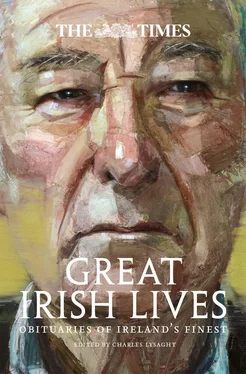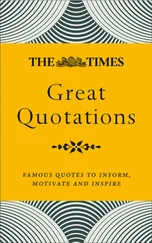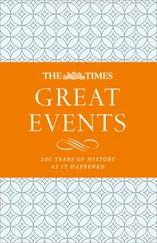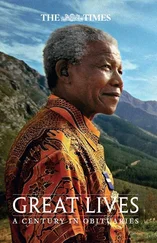The name of Archbishop Cullen has been a foremost one in the history of Ireland for the last 28 years. No man in the kingdom has exercised a greater personal influence, or wielded more absolute power, by virtue of his high episcopal position as a Prince of the Church, Archbishop of the Metropolitan See, and legatee of the Pope. His authority, however, was not used for any selfish motive, or for the gratification of an arbitrary will, but in a conscientious and considerate spirit for the advancement of the interests of religion, according to his ideas of what was patriotic and right. It was not only implicitly obeyed, but was received with the respect and deference due to his office and his character … From the first the Cardinal has been unflinching and indefatigable in his advocacy of denominationalism, and there can be no doubt that the result of his persistent efforts has been to transform the national system into one, in fact, denominational. After a memorable struggle he succeeded in the famous Synod of Thurles by a majority of one vote in procuring the issue of an edict condemning the national schools. This has been a fruitful subject of contention ever since, and a severe embarrassment alike to the Church itself and to the State. This may be said to have been the only question of a political nature with which the Cardinal concerned himself, and it was only in consideration of the religious element that he took an active part in the agitation respecting it. He did not intermeddle in party strife or controversies, or countenance interference of his clergy in electioneering or other political movements. In this respect the Diocese of Dublin contrasted creditably with others in the country. All the thoughts and energies of his life were directed to the interests of religion, and he enforced, on the part of all who were subject to his authority, the strictest attention to their parochial duties. He was an earnest advocate and supporter of the temperance cause, and gave material help in promoting the Sunday Closing Act, and other social reforms. His loyal attachment to the Crown and constitution of England was shown with earnest and consistent firmness in trying times in spite of popular clamour and at the risk of personal odium. To none in Her Majesty’s Dominions was the British Government more indebted for co-operation in extinguishing the flames of insurrection during the Fenian excitement, and restoring tranquillity and order in the country. His great influence was thrown heartily into the scale of constitutional authority, and he spared no exertions to put down every form of secret societies, which he believed to be incompatible with the duty of a citizen and a Christian. In private life he was most estimable, and, under a cold and stern exterior, had a warm and generous heart. In 1866 he was proclaimed a Cardinal priest, being the first Irishman who was invested with the purple and raised to the rank of a Prince of his Church; in 1859 he served as director to the Holy See by organizing an Irish Brigade, who went to assist in restoring the temporal sovereignty of the Pope. He was not present at the election of Leo XIII., although he left Ireland to attend.
CHARLES STEWART PARNELL
8 OCTOBER 1891
MR CHARLES STEWART PARNELL died at half-past 11 on Tuesday night at his residence, 10, Walsingham-terrace, Aldrington, near Brighton. The event was not, however, known locally until yesterday morning, when the news rapidly spread, causing everywhere the greatest astonishment. It had not even been known that Mr Parnell had been ill, and the suddenness of the event led to the dissemination of sensational rumours, which, so far as could be ascertained, were altogether without foundation. Neither before nor after their marriage were Mr and Mrs Parnell much known in Brighton and Hove. Walsingham-terrace, where before the marriage they occupied adjoining houses, and where they had since resided, is a lonely row of houses near the sea some two miles westward of the town. It is not, therefore, surprising that Mr Parnell’s illness should have passed unnoticed. The facts, so far as they can be ascertained, appear to be as follows:- On Thursday Mr Parnell returned from Ireland to Walsingham-terrace suffering from a severe chill. As he was not unaccustomed to similar attacks little was thought of it at the time. The following day, however, he was so much worse that he did not leave his bed. On Saturday some improvement was visible in his condition, but on Sunday he suffered a severe relapse. A Brighton doctor was sent for, and found him, it is said, in the greatest agony, suffering from acute rheumatism. According to another account, however, death is ascribed to congestion of the lungs and bronchitis. Mr Parnell was nursed by his wife and one of her daughters, who happened to be staying at the time at the house next door, still kept up by Mr Parnell. In addition to the doctor already in attendance, two other medical men were called in. Mr Parnell remained, however, in the same condition until Tuesday afternoon, when a very rapid and startling change for the worse occurred, and after lingering for some hours in pain he died, as stated, at half-past 11. With the exception of Mrs Parnell and her daughter, no relatives or immediate friends of the deceased were present. Mrs Parnell is completely overcome by this sudden and heavy blow, and yesterday absolutely refused to see any one …
Charles Stewart Parnell, the eldest son of the late John Henry Parnell, high sheriff of Wicklow in 1836, was born at Avondale, in that county, in June, 1846. His mother was Delia Tudor, daughter of Admiral Charles Stewart, of the American Navy, who, as commodore, had been conspicuous in the naval struggle with England early in the century, when the United States struggled stoutly for the palm of naval supremacy. Mr Parnell’s family had long been settled in Cheshire, and from their seat there his great uncle, Sir Henry Parnell, whose motion on the Civil List turned out the Wellington Government in 1830, and who was afterwards Secretary for War and Paymaster of the Forces under the Whigs, took his title of Lord Congleton. The Parnells belonged to the “Englishry” of Ireland; one of them, Dr Thomas Parnell, an author now best known by his poem “The Hermit,” friend of Pope and Swift, and the subject of a sympathetic biography by Goldsmith, used to bewail his clerical exile among the Irish, and, indeed, consistently neglected his duties as Archdeacon of Clogher; others, later on, during the period of Protestant ascendency were Judges, officials, and members of Parliament; Sir John Parnell, who joined with Grattan and other patriots of that day in fighting for an independence that secured a monopoly of power to their own creed and caste, was Chancellor of the Exchequer just before the Union. Sir John Parnell’s grandson was Mr John Henry Parnell, of Avondale, the father of the future chief of the Separatists, who thus inherited on the paternal side an antipathy to the Union, and on the maternal side the traditions of a bitter conflict with England. Mr Parnell nevertheless received, like many scions of the Irish landlord class, an exclusively English education at various private schools, and afterwards at Magdalene College, Cambridge, where, however, he did not take a degree, and where, it is said, he was “sent down” for some rather gross breach of academic discipline. Some surprise was expressed in Ireland when, in 1874, Mr Parnell, then high sheriff of Wicklow, came forward to oppose in the county Dublin the re-election of Colonel Taylor, who had taken office as Chancellor of the Duchy of Lancaster in the Disraeli Government. He stood as an advocate of Home Rule, to which many of the Irish loyalists had temporarily attached themselves in their disgust at the success of Mr Gladstone’s disestablishment policy. But Mr Parnell’s “Nationalism” proved to be of another type. If it had a sentimental origin in his family traditions, it was qualified and dominated by the cold temper and the taste for political strategy which he seems to have inherited from his American kinsfolk. Defeated by a large majority in Dublin county, he was more successful a little more than a year later when a vacancy was created in the representation of Meath by the death of John Martin, one of the “Young Ireland” party and a convict of 1848, like his brother-in-law, John Mitchel. When Mr Parnell entered the House of Commons in April, 1875, the Liberal Opposition was disorganized, the Conservative Government was both positively and negatively strong, and the Home Rule party, under Mr Butt’s leadership, was of little account. Mr Parnell immediately allied himself with Mr Biggar, who had struck out a line of his own by defying decency and the rules of Parliament, and, with more or less regular aid from Mr F. H. O’Donnell and Mr O’Connor Power, they soon made themselves a political force. How far Mr Parnell saw ahead of him at this time, what his motives were, and what secret influences were acting upon him may, perhaps, never be revealed. He found, as he believed, a method of bringing an intolerable pressure to bear upon the Imperial Parliament and the Government of the day by creating incessant disturbances and delaying all business, and he persisted in this course in spite of the protests and the denunciations of Mr Butt and the more respectable among the Irish Nationalists. To quote the triumphant language of one of his own followers, writing, almost officially, long afterwards, whereas obstructive tactics had been previously directed against particular Bills, “the obstruction which now faced Parliament intervened in every single detail of its business and not merely in contentious business, but in business that up to this time had been considered formal.” The design was boastfully avowed that, unless the Imperial Legislature agreed to grant the Irish demands as formulated by Mr Biggar and Mr Parnell, its power would be paralyzed, its time wasted, its honour and dignity dragged through the dirt. In 1877, the whole scheme of obstructive policy was disclosed and exemplified in the debates on the Prisons Bill, the Army Bill, and the South Africa Bill. Speaking on the last measure, Mr Parnell said that “as an Irishman” and one detesting “English cruelty and tyranny” he felt “a special satisfaction in preventing and thwarting the intentions of the Government.” On one occasion the House was kept sitting for 26 hours by the small band of obstructionists. The rules of the House, even when cautiously strengthened at the instance of Sir Stafford Northcote, proved entirely inadequate to control men, like Mr Parnell, undeterred by any scruples and master of all the technicalities of Parliamentary practice. Motions of suspension produced as little effect as public censure, nor was Mr Butt, though he strongly condemned the policy of exasperation and lamented the degradation of Irish politics into a “vulgar brawl,” able to stem the tide. He was deposed in the winter of 1877 by the Home Rule Confederation of Great Britain, a body including most of the “advanced” wing of the Irish in England and Scotland; and though a modus vivendi was adopted in the Parliamentary party itself, and accepted by Mr Parnell, as he said, in Mr Butt’s presence, on the ground that he “was a young man and could wait,” it was felt that power had passed away from the moderates, of whom many were afraid to oppose the obstructives with a general election in sight, hoping, as the Parnellites said, to tide over the crisis and “survive till the advent of the blessed hour when the return of the Liberals to power would give them the long-desired chance of throwing off the temporary mask of national views to assume the permanent livery of English officials.” History sometimes repeats itself with curious irony, and these words are almost textually the same as those lately used by Mr Parnell of those most intimately associated with him in his campaign against Mr Butt. The Session of 1878 emphasized the cleavage; Mr Butt practically resigned the lead to the extreme faction, and both spoke and voted in favour of the foreign policy of the Government. Mr Parnell pursued his course of calculated Parliamentary violence. In 1879 Mr Butt died, a broken man, and Mr Shaw was chosen to fill his place as “Sessional Chairman” of the party. But events were playing to Mr Parnell’s hands. He had been associated with some of the Radical leaders in the attack on flogging in the Army, and he had been chosen as the first president of the Land League, which was started at Irishtown, in Mayo, a couple of weeks before Mr Butt’s death, and which embodied the ideas brought back from the United States by Mr Davitt after his provisional release from penal servitude, with three other Fenian prisoners, at the end of 1877. Mr Parnell was at the head of the “Reception Committee” which presented an address to these patriots, and the list of those associated with him contains, besides the names of Mr John Dillon and Mr Patrick Egan, those of James Carey, Daniel Curley, and J. Brady.
Читать дальше












